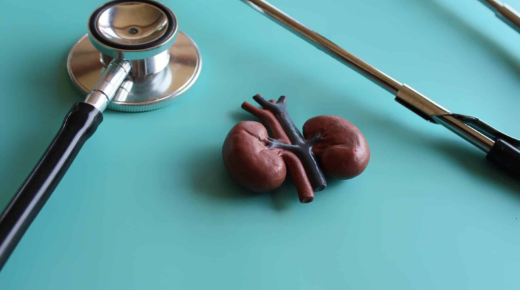Understanding VA Disability for Chronic Kidney Disease
The U.S. Department of Veterans Affairs (VA) provides disability benefits for veterans suffering from chronic kidney disease (CKD) secondary to hypertension. CKD is a long-term condition where the kidneys do not function properly. Veterans whose CKD is linked to service-connected hypertension may qualify for these benefits.
What is Chronic Kidney Disease?
Chronic kidney disease (CKD) is a condition characterized by a gradual loss of kidney function over time. Kidneys filter waste and excess fluids from the blood, and as CKD progresses, this function deteriorates. This can lead to dangerous levels of fluid, electrolytes, and waste in the body, requiring medical intervention.
Hypertension and Its Impact on Kidney Health
Hypertension, or high blood pressure, is a common condition that can severely impact kidney health. Over time, high blood pressure can damage the blood vessels in the kidneys, leading to CKD. This relationship makes it essential for veterans with hypertension to monitor their kidney health closely.
Service Connection for Hypertension
A service connection for hypertension means that the condition is linked to a veteran’s military service. For many veterans, hypertension develops due to the stress and physical demands of service. Establishing this connection is crucial for veterans seeking VA disability benefits for conditions like CKD secondary to hypertension.
Eligibility Criteria for VA Disability Benefits
To qualify for VA disability benefits for CKD secondary to hypertension, veterans must meet specific criteria. This includes having a confirmed diagnosis of both hypertension and CKD, and evidence that the CKD is a result of the service-connected hypertension. Proper documentation and medical records are essential.
How to File a VA Disability Claim
Filing a VA disability claim involves several steps. Veterans need to gather medical evidence, including diagnosis records and treatment history. They must also complete the necessary VA forms and submit their claim through the VA’s online portal, by mail, or in person at a VA office. Guidance from a Veterans Service Officer (VSO) can be helpful.
Importance of Medical Evidence
Medical evidence is crucial when filing a VA disability claim for CKD secondary to hypertension. This evidence includes medical records, doctor’s notes, and diagnostic test results that confirm the diagnosis and link it to the service-connected hypertension. Comprehensive and accurate medical documentation strengthens the claim.
Role of the VA Rating Schedule
The VA uses a rating schedule to determine the severity of disabilities and the corresponding compensation levels. CKD secondary to hypertension is evaluated based on how much the condition impairs the veteran’s ability to work and perform daily activities. The ratings range from 0% to 100%, with higher ratings indicating more severe impairment.
Understanding VA Disability Ratings for CKD
VA disability ratings for CKD are based on the degree of kidney function impairment. Factors include glomerular filtration rate (GFR), presence of symptoms like fatigue or fluid retention, and the need for dialysis. Veterans with more severe symptoms or significant loss of kidney function receive higher disability ratings.
Secondary Service Connection Explained
A secondary service connection occurs when a service-connected condition causes or aggravates another condition. For veterans with hypertension, CKD can be a secondary condition. Establishing this connection involves showing medical evidence that the primary condition (hypertension) led to or worsened the secondary condition (CKD).
Navigating the VA Appeals Process
If a VA disability claim for CKD secondary to hypertension is denied, veterans have the right to appeal. The appeals process involves requesting a review of the decision, providing additional evidence, and possibly attending a hearing. Understanding the steps and deadlines in the appeals process is critical for a successful outcome.
Common Challenges in VA Disability Claims
Veterans often face challenges when filing for VA disability benefits for CKD secondary to hypertension. These challenges include gathering sufficient medical evidence, proving the connection between conditions, and navigating the complex VA claims process. Awareness of these challenges can help veterans prepare and seek appropriate assistance.
The Importance of Legal and Medical Support
Having legal and medical support can significantly enhance a veteran’s chances of a successful VA disability claim. Legal professionals familiar with VA claims can provide guidance and representation, while medical professionals can offer necessary documentation and expert opinions to support the claim.
Tips for Strengthening Your VA Disability Claim
To strengthen a VA disability claim for CKD secondary to hypertension, veterans should maintain thorough medical records, seek regular medical care, and provide detailed statements about their symptoms and limitations. Consulting with a VSO or legal expert can also help ensure all necessary information is included in the claim.
Impact of CKD on Veterans’ Lives
Chronic kidney disease can significantly impact veterans’ lives, affecting their health, daily activities, and ability to work. Understanding these impacts helps in documenting the extent of disability for VA claims. Veterans should describe how CKD affects their life in detail to support their claim for benefits.
VA Disability Compensation Rates
VA disability compensation rates are based on the disability rating assigned to the veteran’s condition. These rates are designed to provide financial support to veterans whose service-connected disabilities impair their ability to work. Higher disability ratings result in higher compensation payments.
Accessing VA Healthcare Services
Veterans with CKD secondary to hypertension can access healthcare services through the VA. This includes regular monitoring, treatment, and management of both conditions. Access to VA healthcare ensures that veterans receive comprehensive care tailored to their specific health needs.
Special Monthly Compensation (SMC)
In addition to standard disability compensation, veterans with severe disabilities may qualify for Special Monthly Compensation (SMC). SMC provides additional financial support for veterans with significant health issues, such as those requiring regular dialysis or experiencing severe limitations due to CKD.
Long-Term Management of CKD
Long-term management of CKD involves regular medical check-ups, lifestyle modifications, and adherence to treatment plans. Veterans should work closely with their healthcare providers to manage CKD and prevent further kidney damage. Proper management is crucial for maintaining quality of life and overall health.
Educational Resources for Veterans
The VA offers various educational resources to help veterans understand CKD and its management. These resources include information on diet, exercise, medication, and other aspects of living with CKD. Accessing these resources can empower veterans to take an active role in their health care.
Support Systems and Resources
Support systems and resources are essential for veterans coping with CKD secondary to hypertension. This includes support from family, friends, healthcare providers, and veteran organizations. Engaging with these support systems can provide emotional, practical, and financial assistance.
The Role of Lifestyle Changes
Lifestyle changes play a crucial role in managing CKD and hypertension. This includes maintaining a healthy diet, exercising regularly, avoiding tobacco, and limiting alcohol intake. Such changes can help control blood pressure, slow CKD progression, and improve overall health.
Monitoring and Preventative Care
Regular monitoring and preventative care are essential for veterans with CKD secondary to hypertension. This involves routine blood pressure checks, kidney function tests, and consultations with healthcare providers. Preventative care can help detect complications early and ensure timely interventions.
Conclusion: Advocating for Your Health and Benefits
Advocating for your health and benefits is vital for veterans with CKD secondary to hypertension. Understanding the VA disability claims process, gathering robust medical evidence, and seeking appropriate support can help veterans secure the benefits they deserve. Taking proactive steps in health management and legal advocacy ensures veterans receive the care and compensation needed for their service-connected conditions.




